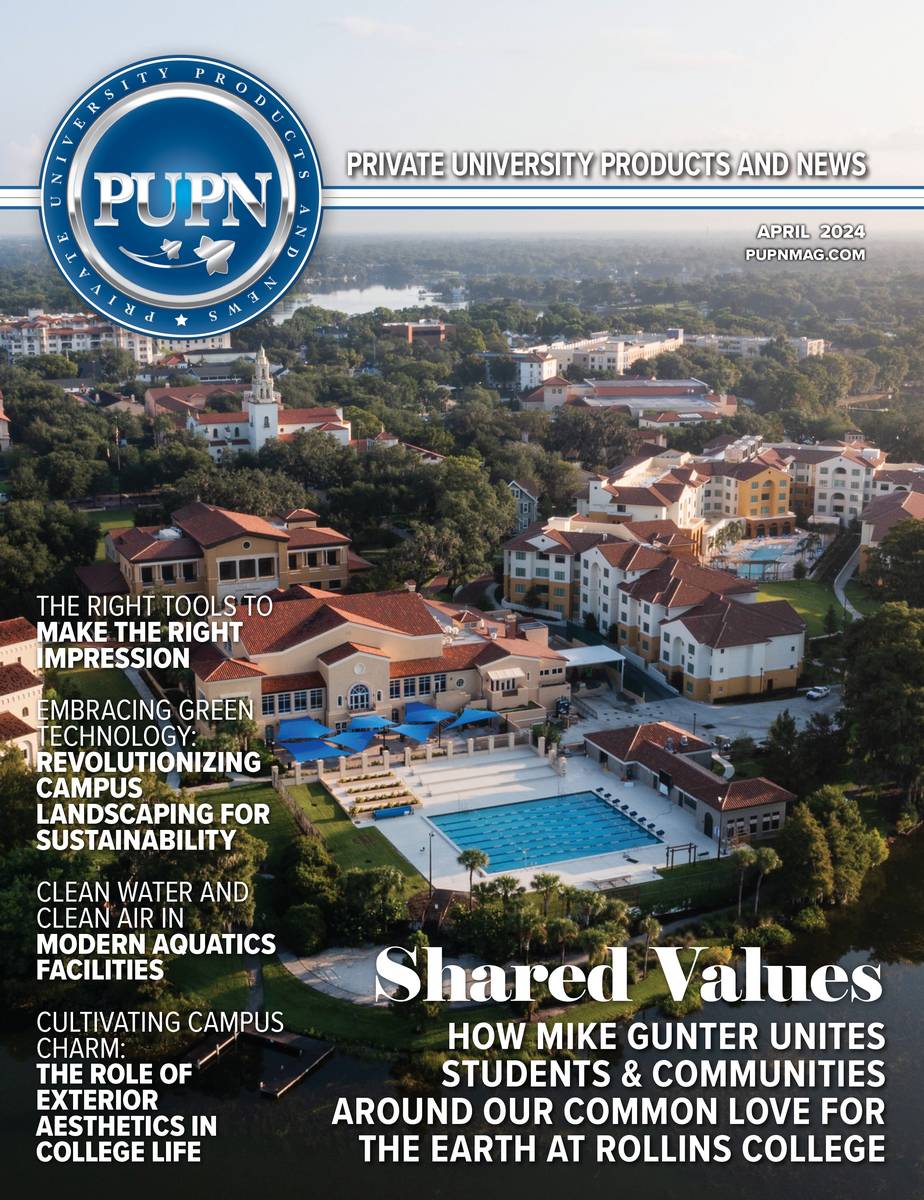Seham’s work also incorporates Theatre of the Oppressed, a practice founded by Brazilian director Augusto Boal on the idea that performers can create moments inside theatre that invite the oppressed or marginalized to resist oppression through enacting protest. For instance, in a “Forum Theatre” piece, actors could present a moment of injustice, then play out that same scene again but encourage spectators to enter the scene and present an alternative course of action. These pieces are often designed with specific audiences in mind, such as a group of women who sought shelter from abuse.
Boal believes, “Theatre is a form of knowledge; it should and can also be a means of transforming society. Theatre can help us build our future, rather than just waiting for it.” Based on this belief, Seham spearheaded a mission that puts Theatre/Dance in a social context.
E Pluribus Gustavus: A Dramatic Orientation to Campus Values
I Am We Are (IAWA) is a student group that has the opportunity to perform during New Student Orientations. With advice from their mentor Seham, IAWA members use Boal’s techniques and other methods to create performances from their personal stories that are shared with incoming freshmen—stories based on their experiences with loneliness, peer pressure or homesickness; they also tackle the sometimes controversial issues of racism, depression, heterosexism, and sexual assault. They call the selection of skits E Pluribus Gustavus.
In several serious and comic scenes, IAWA actors take on every kind of stereotype in order to show the faulty assumptions at work in ideas that are often quietly accepted but not verbalized and dissected. The show is often addressing students coming from rural towns who haven’t known people who aren’t “like them,” Seham adds.
Michele Rusinko, Chair of Theatre and Dance at Gustavus, believes the IAWA group embodies the part of the Gustavus mission statement that reads, “The College aspires to be a community of persons from diverse backgrounds who respect and affirm the dignity of all people.” Like her colleague Seham, Rusinko notes that students arrive at Gustavus “from very diverse backgrounds, and within that diversity are students who have lived quite sheltered lives.”
Another powerful and evocative—and even controversial—piece of the orientation show is called “Words of Hate.” As the lights in the auditorium dim to total darkness, troupe members start by whispering the horrible words linked to mindless hate. Their voices grow louder and louder, as troupe members move through the audience or even settle directly behind audience members.
Finally, at its culmination, one voice overpowers the others with a resounding “STOP.” The lights come back up, and students are told, unequivocally, to stand up to this language when they face it—not to be silent in the face of hate. In closing, students are reminded of these words originally spoken by Helen Keller: “I am only one, but still I am one. I cannot do everything, but still I can do something; and because I cannot do everything, I will not refuse to do something that I can do.”
Rusinko believes that attending and discussing E Pluribus Gustavus offers all incoming students “a consistent message about a few central tenets about what it means to be a member of this community—including the central belief that hate speech has no place on this campus, and that every individual has the right and responsibility to speak up and intervene when they are witness to acts of social injustice.”
Rusinko adds that Seham “empowers her students with this authority” through her work with IAWA, and—among other gifts Seham has brought to campus—Rusinko applauds her colleague’s dedication to providing students with an immediate way to deal with campus hate crimes, using these tools.
From their first steps on campus, Seham explains that from their first steps on campus, students know know “we do not let people do this here—we stand up against these things.” In these performances, the students of I Am We Are are not just showing the conflict; they are enacting the resolutions. The show’s primary message is one of acceptance and solidarity. Students who feel “different” or afraid they will be “the only one” on campus who struggles with a variety of issues, see that there is support, help, and understanding readily available.
Spasms of Resistance: Campus Reactions to Volatile Theatre
Though many campus members support the goals and agenda of IAWA, there have been “spasms of resistance,” Seham shares. For instance, one student decided to tape the “stereotyping” skit but only played the problems, not the resolution. This tape was shared with several alumni, with a note that new students were “forced” to view these skits. As the continuing use of IAWA at Orientations demonstrates, Seham finds a remarkable level of administrative support at Gustavus, yet misrepresentations like this edited tape can cause concern. IAWA has occasionally been asked to “tone it down.” Though Seham has—of course—resisted any form of censorship, no matter how well intended, the troupe does sometimes make concessions in style or content. But, she adds, “We are fighting it every step of the way.”
“Students have to believe we are speaking the truth,” she explains. To allow her students to keep the voices she has devoted herself to protecting, she must be “vigilant about speaking freely.” Even in the face of resistance, though, Seham finds the teachable moments. “At what point have you lost the integrity of your platform?” she questions—adding that they need to be sure to prove that they “really mean it when we say we are for social justice.”
Of course, she is also sensitive to administrative concerns. She doesn’t want students to stay shocked and upset; that has never been the goal. They need to be impacted, however, and that means being uncomfortable for a moment. “But then we give them an immediate place to discuss these things,” Seham adds. Basically, the students are being “jostled” and sent into dialogues where they are more likely to be direct and truthful. People might vary on what a good outcome of the project would be, but for Seham a successful orientation session ends with students who “feel safe and feel accepted.”
These Brechtian and Boalian tools and techniques are about “getting people activated,” Seham notes. The group meetings afterwards allow students to process what they have witnessed and felt. More importantly, they learn that whatever they are facing, or may face, they will not be alone on that campus. Seham adds, “We are saying—we are here.”
I Am We Are
Virgil Jones, the Assistant Dean of Students and Director of Multicultural Programs and co-advisor to IAWA, explains that his and Amy’s work with IAWA provides “spaces to dialogue” about racism, sexism, physical ability, and suicide—among many other issues—which proves to be “transformational” for many on their campus.
Paula O’Laughlin, Associate Provost and Dean of Arts and Humanities, adds that the troupe provides the campus with “a crucible or lens through which all can explore their own feelings about some of the issues they address.” O’Laughlin also believes Seham’s work—and the Theater program in general—allows the chance for the college to show their “clear support of academic freedom.”
Recent alumnus and former IAWA member Brian Evans says his experiences as a troupe actor are “still instrumental” in how he views the world and interprets events. Evans finds that his former experiences with IAWA allow him to “contextualize the good and the bad and the hate.” Evans adds that his time in IAWA allows him, even now, an alternate reality of sorts, where he is not at the mercy of the view of him that is presumably forged by society. Evans notes he was given tools that offered “more control of how I choose to be in the world and the knowledge that it is even a choice at all.”
Karla Leitzman, a theatre major and troupe member, adds that she once believed theatre to be a “fleeting and even selfish thing.” Once she saw firsthand the impact IAWA can have, and started working closely with Seham, she realized that theatre “can and should be used for a tool to affect change.”
Their stories are varied, but the common thread is the vulnerability they demonstrate and the courage required to share memories that are incredibly personal and painful. For instance, during her senior year, a recent graduate and theatre major—Caitlin McCarthy—pulled an event from her life that was fraught with complicated feelings. She had been sexually assaulted two years before. “The skit told the story of the horrible night when I was assaulted and then taken away to detox without shoes, even though I was the victim.” Her skit ended with a voicemail her father left a month after the incident, where he was in tears. He told her how proud he was of her, how glad he was that she was okay. It ended with him telling her he loved her.
Following one of IAWA’s presentations of this skit, an incoming freshman shared that she had been similarly assaulted and left to deal with the emotional fallout alone. McCarthy notes, “It was almost as if through the skit, we both were able to let go of our demons—to say that indeed this awful thing had happened to us, but neither of us were defined by it.”
Alexander Christensen, a senior majoring in Peace Studies and Environmental Studies, adds that he joined IAWA because of how E Pluribus Gustavus made him feel. Though he had participated in high school theatre, he was mesmerized by the “rawness of the theatricality” as well as the premise of only using stories from within the group, which was—for him—as “humbling as it was inspiring.” In fact, Christensen believes the most powerful component of IAWA is truth, adding, “Every single piece we perform comes from someone being courageous enough to share their vulnerability in front of an audience.”
Turning Anger to Dialogue: Guerilla Theatre on Columbus Day
Noting that their efforts are not universally supported by other members on campus, Alexander Christensen believes the occasional negativity “comes from a desire for dialogue, not an opposition to it.” He acknowledges that some of what they do creates shock because they are portraying perspectives that usually are not voiced. The result for some, he explains, is they interpret these portrayals as a “rejection of their sense of truth.” He uses a recent piece of guerilla theatre to illustrate.
Last Columbus Day, IAWA members dressed in black and red and “littered the area around the entrance to the cafeteria” while a troupe member—dressed as Columbus—welcomed people to the New World and pointed out he had “cleared the way.” There was some immediate backlash from community members—from people who took issue with the portrayal of Columbus to people who were annoyed and frustrated at having to step over bodies just to have breakfast. As they had been taught, IAWA members didn’t just leave it at the confusion or annoyance the piece generated. They set up a forum to discuss the positions that were beneath the theatrical moment.
For Christensen, he thought it was “pretty fair to present a minor inconvenience to provoke thought about an under-recognized genocide,”but he called the forum a success primarily because the group was allowed to “share intent with some of our audience, and compare it with the impact it had, two things which should never be conflated.”
Christensen was happy for the reminder to the troupe members about the importance of facilitating discussion and also thought the entire experience revealed an “encouraging reality that people really do want to talk about these tough issues,” as long as they feel safe doing so. Current IAWA member Connie Boatwright adds of the Columbus piece, “The thing is you just have to get clarity. Be clear with the individual who is confused, and make them be clear with you. It’s always about communication.”
Similarly, Brian Evans believes that the group deals proactively with negative feedback because “backlash only happens when one is not fully educated on a topic and what results is fear based reaction that most can’t see past.” He also suggests it’s important to realize that nothing here is new—it’s a “cyclic version of our world that at times we’re stuck in, and it takes groups like IAWA and professors like Amy to shake us out of the cycle and let us see the possible.”
From his position of Assistant Dean of Students, Virgil Jones shares that the “authenticity” of IAWA members makes it easier for the college to support the learning outcomes the college has set for its students. Jones notes, “I find infinite value in the appropriateness, rawness and the unapologetic way that we engage students through theatre.”
On this same note, Kimberly Braun—who is now working professionally in theatre—suggests that when there is a strong reaction to her work, she knows she needs to keep it up. “I don’t aim to make people uncomfortable or to shock, but people may be unsettled if they’re going to think. Theatre is more than a brain massage. It is the litmus test of a society. We just keep making our art and invite dialogue with all parties.” Karla Leitzman adds that she finds the backlash fascinating, but believes the best part of the negative reactions is the resolution: that that they are able to remain a “family” on the Gustavus campus. She states, “We get frustrated, but then we figure out how to fix it and turn our frustrations into art. How can it be better than that?”
Seham’s Mentoring: Tailoring the Message
Seham shares that “Creating Social Justice Theatre” is now required for the major. In addition to Boal’s techniques, the course includes genres such as applied theatre, theatre in community and docudrama. Seham believes in “making the










